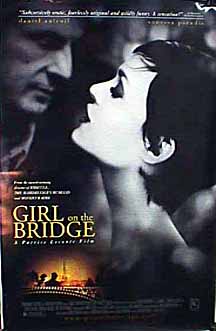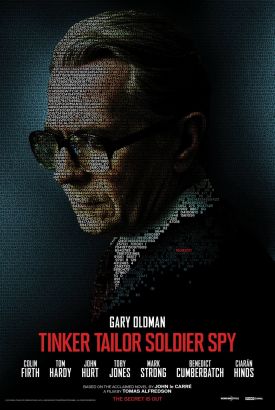Cult of the Suicide Bomber, The
Watching legendary ex-CIA agent Robert Baer, the model for George Clooney’s character in Syriana, narrate The Cult of the Suicide Bomber, you begin to get some idea of why the CIA is in the mess it is. Here’s a guy who, you’d think, must have seen it all — someone whom nothing can shock — and yet his wide-eyed eagerness to make our flesh creep is straight journalistic hype. This is not to say that the film, directed by David Batty and Kevin Toolis, doesn’t have a lot to offer. Indeed, as a history of the phenomenon which now affects the lives of all of us, it is indispensable, a must-see. Mr Baer’s expertise in the politics and passions of the Middle East enables him to trace the theory and practice of suicide bombing to the Iran-Iraq war of a quarter-century ago. Then, a 13-year old Iranian boy named Hossein Fahmideh strapped on explosives and blew himself up, along with an Iraqi tank. Hailed by the Iranian ayatollahs and civil authorities alike as a martyr, the boy became what we would call a “role model” for thousands of other young Iranians, many of whom went and did likewise when suicide bombing was adopted by the Iranian army as a regular tactic against the Iraqis.
Within a year or two, Iranian-influenced terrorist groups in Lebanon were using it against the Israelis, who were then occupying the southern part of the country, and the Americans who had sent a contingent of marines in an attempt to keep the peace in the midst of the Lebanese civil war. When a suicide truck bomb blew up the marine barracks in Beirut and killed 241 Americans, President Ronald Reagan withdrew our forces from the country. In the 1990s, suicide bombings began in Israel. Up until that time, the tactic had been limited to Iranians and Iranian-influenced Shi’ite terrorist groups, but eventually it was taken up by the Sunni Palestinians, who began to target buses as well as bars and restaurants where mainly young Israelis gathered. Today, by far the greatest number of suicide bombings occurs in Iraq, where they are employed by Sunni insurgents against the Shi’ite-dominated government backed by the Americans. In one of the more grimly amusing ironies displayed by the film, we watch an Iranian ayatollah denounce the tactic that he and other Iranians pioneered, now that it is being used against his fellow Shi’ites in Iraq.
Mr Baer, who ends his compelling story with last summer’s London Underground and bus bombings, tells it with the help of interviews with Israeli, Syrian and Lebanese intelligence officials and with the families of some of the martyrs. In one particularly notable instance, he visits the family of Tariq Hamid, who blew himself up in an unsuccessful attack on an Israeli patrol, as they celebrate his martyrdom. His father smiles and professes his joy at such a glorious death for his son, holding up a photograph of him above the well-draped head of the young man’s mother. But mom, though obedient and demure as good Arab wives are expected to be, doesn’t look quite so joyful about it.
For all his expertise, Mr Baer seems to me to be far too willing to take fanatical pronouncements like that of Tariq Hamid’s father at face value. Another of his interviewees, a friend of Yahya Ayyash, who masterminded dozens of suicide bombings before being assassinated by the Israelis with an exploding cell phone, tells him that “the Jews don’t like people dying, but we don’t mind dying. That’s the difference. . . That’s why the Jews are afraid.” Among the Palestinians, he says, “all mothers want their children to be like him,” meaning Yahya Ayyash. In other words, “Aren’t you terrified by us?” Robert Baer clearly is — hence all the film’s hype about how “suicide bombers are the smartest weapons ever invented.” and “a person without fear of death is one of the most deadly weapons imaginable.”
Well, maybe so, but we have only their own word for this alleged fearlessness — and it is clearly in their own interest to make us believe in it. You’d think an experienced intelligence officer would take such remarks with a grain of salt, but Mr Baer doesn’t. Here he is, for instance, in his sign-off, telling us that now suicide bombers blow up themselves and others “with no apparent reason. . .For them, death is the only aim. . . Suicide bombing has turned into a weapon of chaos.”
No they don’t; no it isn’t; no it hasn’t.
Their reason is to impress us with how fearsome they are — clearly they have been successful with Mr Baer — and therefore how inevitable is the triumph of their cause. We might just as well give up and give them what they want now, rather than waiting while more people die. Nor is death the terrorists’ only aim. On Mr Baer’s own showing, their aim is honor — “I am doing this for my honor,” says Tariq Hamid on a videotape made before he died — and beyond that, to become the means by which terror is stricken in our hearts. Hence the name. Above all, suicide bombing is not a weapon of chaos. It’s true enough that every time a suicide bomb goes off there is chaos for a while around the spot, but then life goes back to normal for most people. There may be more fear and more security measures, governments may make a tough or a craven response, but general chaos there certainly is not. Of course the bombers would like to believe in their own power to throw our society into chaos; the question is, why does Robert Baer believe it?
Discover more from James Bowman
Subscribe to get the latest posts to your email.








